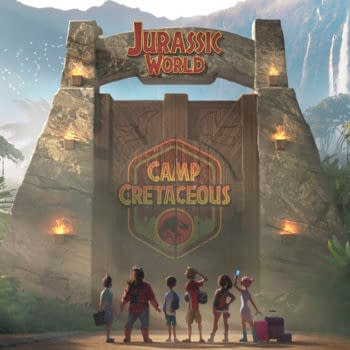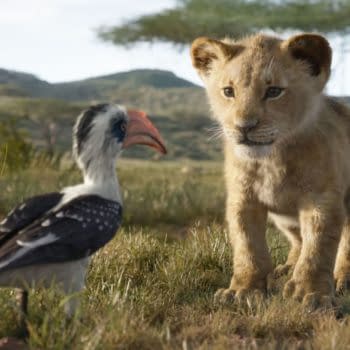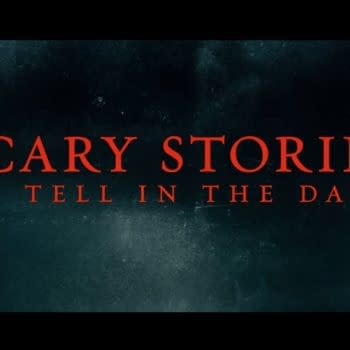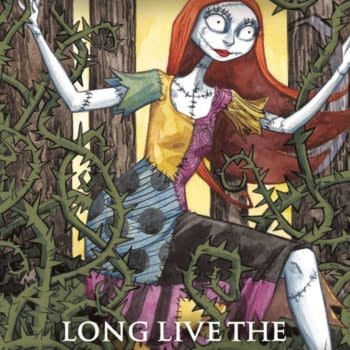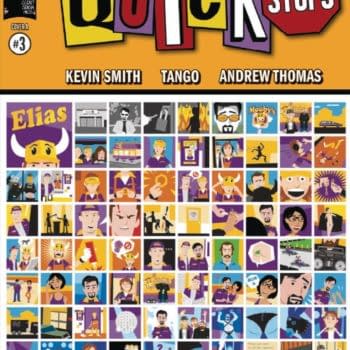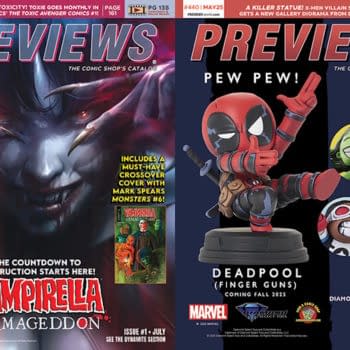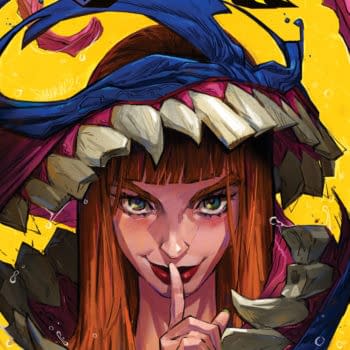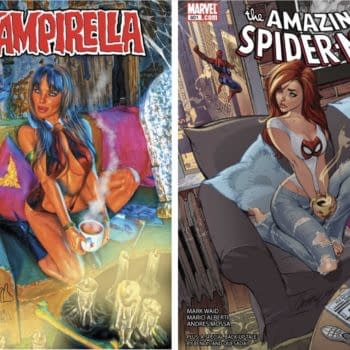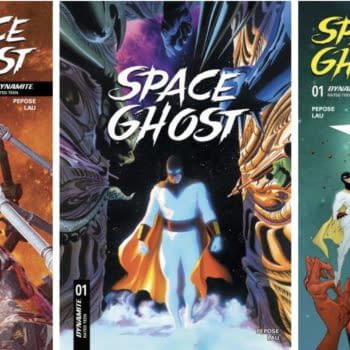Posted in: Comics | Tagged: Comics, elfquest, ElfQuest The Final Quest, HRL, interviews, richard pini, WARP Graphics, Wendy and Richard Pini, wendy pini, Wolfriders
ElfQuest: The Final Quest – a Chat with Wendy and Richard Pini
Since 1978, the world of Cutter and his Wolfriders has been a wonderful marriage of fantasy genre and comic book medium, brought to life by the art and storytelling of Wendy Pini along with the EQ facilitator, Richard Pini. It's been a long run, one that sadly is coming to a conclusion this month with the publishing of the last great adventure, "ElfQuest: The Final Quest" #24.
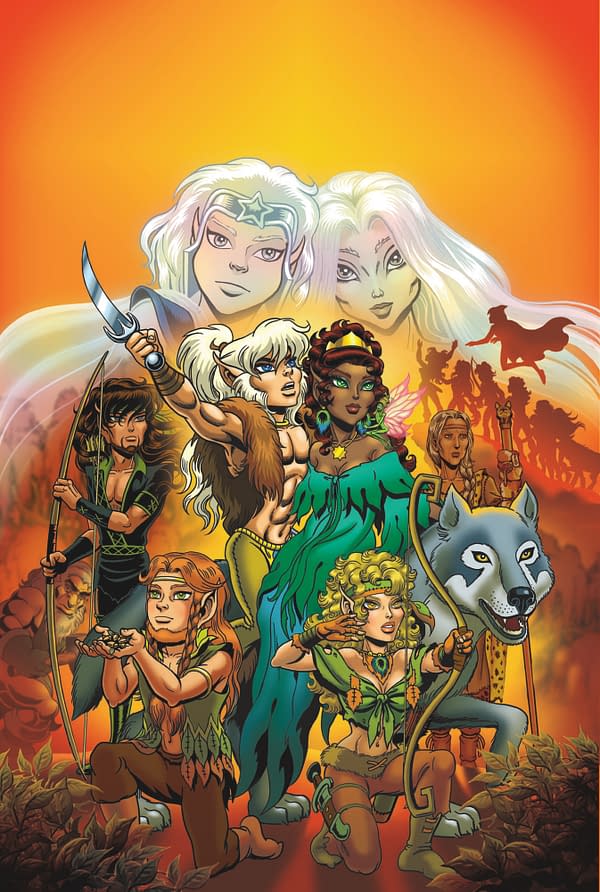
ElfQuest has long been a gateway drug into the world of comics for many a reader. There is the longstanding joke (joke because we know there have been female comics readers since the beginning of the funny papers, no need to @ me) has long been made that the 'few' times girls went into comic shops in the late '70s early to '80s was to hunt down issues of the Wendy and Richard-created title.
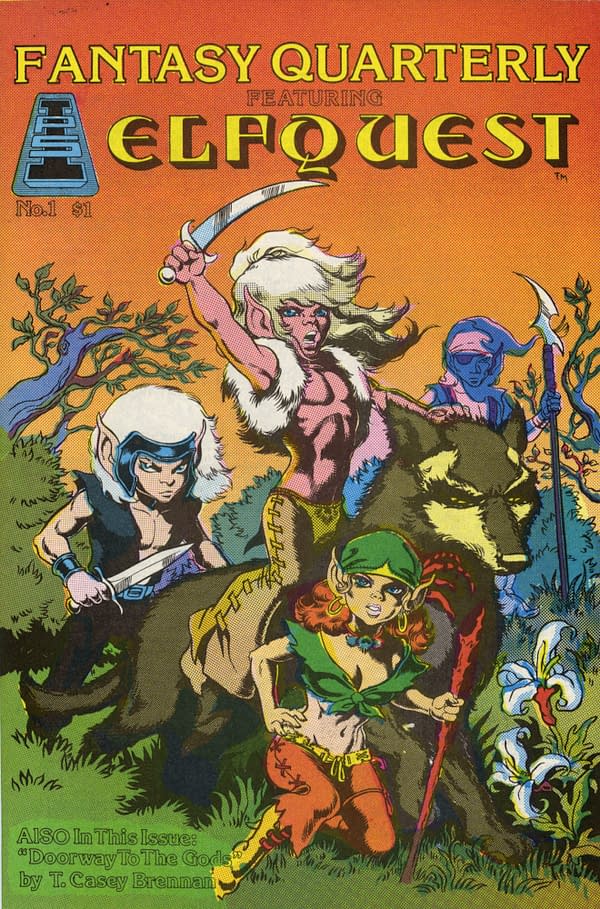
(I own a copy that the Pini's signed for me back when WonderCon was still in San Francisco, Richard's reaction of WHERE DID YOU GET THIS was priceless)
Both Pinis were kind enough to answer some questions for Bleeding Cool ahead of the release of Final Quest #24, which I'll totally admit I'm both excited and heartbroken for. For a good series, you mourn the end and characters, and I'm definitely doing that for the gift that Elfmom and ElfPop have given fans.
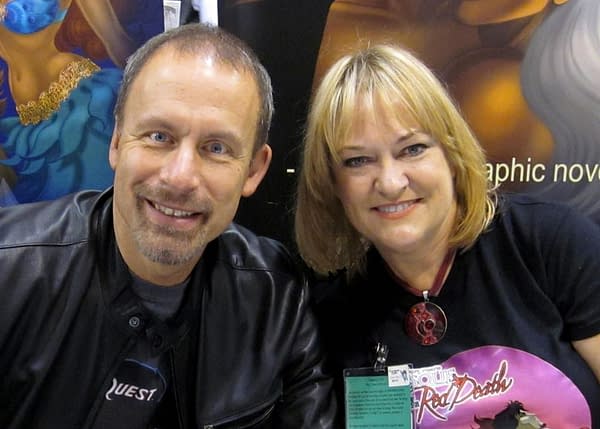
Bleeding Cool (to Wendy): You've been one of the most prolific female artists in comics, and you've managed to maintain almost complete creative control (it appears) of your characters in a world where it's very, very rare. Ask any female comic artist working right now who they would list as an inspiration and touchstone, it's nine times out of 10 you. What is that like for you, knowing that your talent and drive helped inspire so many, and continues to do so? What would you tell any young people (of any gender) who were just beginning in the industry right now?
Wendy: As you can imagine, I'm deeply moved whenever a younger artist, male or female or other, tells me that my work has prompted them to try their hand at telling their own stories. It's very exciting to know that the legacy will go on and that new and exciting stories and art will go on and on after me. As to what advice I could give a young artist or writer eager to break into the comics business right now, the first thing I would say is: it's very, very tough. The competition out there is fierce. If you have an idea that you really believe in, believe in it with your whole heart and don't abandon it just because you find a lot of roadblocks in your way. Comic conventions are the best way to meet professionals in the industry who can give you advice and perhaps even a hand. Be prepared. Prepare your portfolio beautifully. Prepare your scripts beautifully. Do not present yourself or your work at any less than the very best. Also, become web-savvy and digital-savvy. The comics industry has changed. You'll be expected to meet unyielding deadlines. You have a better chance of doing that if you learn the ropes of digital drawing and coloring.
BC: (to Wendy) A story that's often told by comic readers of a certain age — their discovery of ElfQuest around the 10 years of age mark. Did you think the art/stories would have such appeal for both the younger audiences and adults? It seems like EQ is one of the few published comics that really can boast that.
Wendy: As a developing young artist myself, the work of Osamu Tezuka and Japanese manga artists influenced me greatly. It's inevitable, therefore, that my comic book drawing style would have a cartoonish element. I think kids gravitate to cartoons easily, and so Elfquest would certainly grab pre-adolescent kids. This was not deliberate. It was my own interpretation of all the tropes I had learned from manga. And as you know, much like Tezuka, I deal with mature themes in Elfquest but still portray them with a slightly cartoonish style. I feel that the tension between the lighthanded drawing style and the heavy subject matter creates real excitement.
BC: (to Wendy) One of the big takeaways from the comics (as a young lady) was the strength of the women in your pages. Even the women who are motivated by family (Moonshade and Dewshine as examples, but Clearbrooke my personal favorite), which for whatever reason is never seen as 'true strength' when obviously it is, can almost be put ahead of the males in terms of motivation and endurance. Was this by design? A desire to have the women be the backbone of the world?
Wendy: Nothing in Elfquest is by design; it is all by intuition. Just as I found all the male characters, with all their male aspects, inside myself, so I found the women as well. It took strength for Richard and me to get this project started and to sustain it over the many years, through all kinds of problems and challenges. Strength is strength. It doesn't have a gender. I am very happy, though, that girls and women find good role models in Elfquest's female characters. They are not clichés; they are all different kinds. Some are soft, and some are really, really tough. And I think that's absolutely OK. Now that Final Quest is done, I think it's pretty obvious to any reader that we end on a matriarchal note, and to me, that just evolved through the natural course of telling the story.
BC: (for Richard) You equally have been such a driving force behind an enduring title and integrity of story. Has that been more of a challenge or a blessing in the long run?
Richard: Challenge or blessing — those aren't necessarily opposites. I like to consider myself, even more than Elfquest's co-creator, as its facilitator. If Wendy is the primal electric force of artistic creation and the audience is, metaphorically speaking, the light bulb that her energy illuminates, then I think of myself as the wire that gets the one to the other. Wearing the various hats that I have over 40 years has been both challenge and blessing; I've had to learn from scratch just about every aspect of this business. I know I've made mistakes along the way, but I've learned from them, and that is a great blessing. Because Elfquest is a very personal work for Wendy and me, it is both imperative and gratifying to contribute to keeping the train on its tracks.
BC: Did you think when this journey started with Fantasy Quarterly (I'm imagining an eye roll there) it would continue this long and this successfully?
Richard: That is one of the most frequently asked questions we get, so for fun, put yourself in our shoes back then. We were young, we were naive, we were piss-and-vinegar ambitions, and we had no clue what we were getting ourselves into. We knew we wanted to tell a story, and we knew the comic book format was the way to go. That's about it. We had to teach ourselves every aspect of production and distribution at a time when the direct market was only a few years old. No one knew a lot about anything. But, as we said up above, there was — and still is — something magical about Elfquest and the way it appeals to young and older readers alike. That first issue sold an unheard-of 10,000 copies, and we've never looked back from that. We are very grateful to our readers over these many years for keeping the Quest going.
ElfQuest: The Final Quest #24 releases on February 28th, and Wendy recommends a reread of "Wolfrider", "Troll Games" and "Soul Names", and "Searcher and the Sword" EQ titles before diving in.
Thank you for 40 years of ElfQuest, Wendy and Richard. Shade and sweetwater to you forever.





